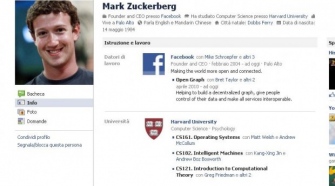There are some frauds that are played out over a lengthy period of time, dripping money away from where they should be and into a personal account of an individual. Some people may think that taking small amounts on a regular basis is a good way to not draw attention yourself. However, there is a thought that every new transaction puts yourself at risk of being caught, which is why it is often best to get in and get out quickly when it comes to committing fraud.
This was the opening of Francis Edward Naylor who aimed to steal over £324,000 from the public purse in the course of a morning. If Naylor had got away with his crime, he would have bagged this amount of money in just two and a half hours. That is not a bad bit of work for a morning and if you were to work out the pro-rata sum of money, you would see why it held some interest.
The big return can be an enticing prospect
However, he was caught and has now received a suspended prison sentence as well as being banned from being a company director. Naylor made two separate false claims for VAT refunds in one day. One claim was made on behalf of The Bear Book Company Ltd and the other claim was made on behalf of Woodlands Recycling Ltd. Naylor was in charge of a number of businesses, all of which have now been closed down due to the fact that they did not file tax returns.
One of the reasons that the claims were discovered was due to the fact that they were massive compared to the usual quarterly claims made by a company. While committing a major act of fraud can seem like a sensible approach, aiming for one big hit, it is easy to see that a major transaction is more likely to be questioned by people in authority. The standard quarterly claims for the company amounted to a couple of thousand pounds, which led to the tax authorities beginning an investigation into Naylor.
Judge Stephen Ashurst told Naylor, “Businessmen who make fraudulent claims must understand they are at risk of going to prison. White collar crime is still crime.” The judge handed down a 15 month suspended prison sentence after reading reports from psychologists and psychiatrists.
It transpires that Naylor may well be autistic and he could suffer from an attention deficit hyperactivity disorder. With respect to the director disqualification rules, the judge felt that there was scope to disqualify Naylor from being a director for a period of 7 years.
Judges can be damning with their opinions
In summing up his decision, the judge said; “You are on any view a completely inept businessman. You are not cut out to run any business.” Naylor is 61 and given his age, it is difficult to see him serving as a director again in the United Kingdom. As well as his guilty plea, Naylor announced that he had no intention of running any other businesses.
Whne you delve further into Naylor’s history, the story becomes a lot more twisted. Between 1996 and 2012, Naylor had been a director of 12 firms, with his position sometimes being listed under a false name. The companies were usually registered for corporation tax but never submitted their tax returns and would eventually be struck off. Investigation showed that at the time the false claims were made, Naylor had a role with 9 different companies. The two companies involved with the claims have since been dissolved.
In defence of Naylor barrister Graham O’Sullivan said; “This strange behaviour was not borne out of greed, but something else, possibly some grandiose gesture.”
There is always a need to judge people on a number of factors and their health and mental well-being is clearly a major issue for many businessmen and women. However, the long-running strange nature of business behaviour from Naylor is clearly a reason to preclude him from serving as a director. There may be genuine reasons why he should be spared a custodial sentence for his crimes but he should also be kept away from major business decisions where he could impact on employees, consumers and the HMRC.
Andrew Reilly is a freelance writer with a focus on news stories and consumer interest articles. He has been writing professionally for 9 years but has been writing for as long as he can care to remember. When Andrew isn’t sat behind a laptop or researching a story, he will be found watching a gig or a game of football.
















